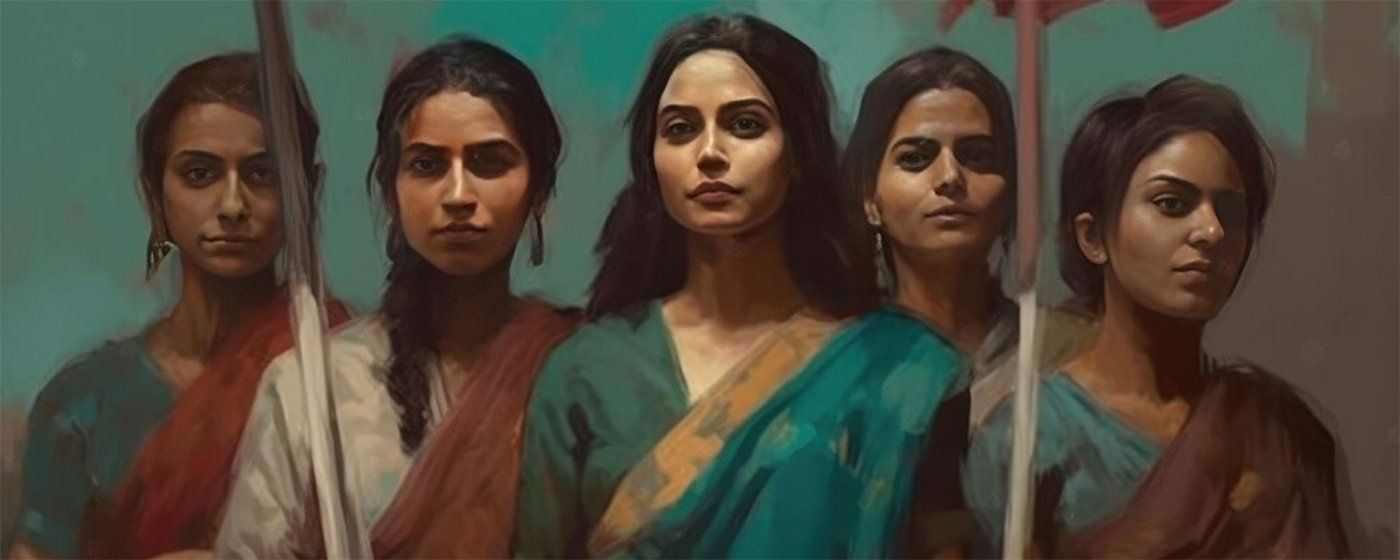

Women Empowerment in India: Breaking Barriers, Transforming Society
Women empowerment is a critical issue in India, as it strives to build an inclusive and equitable society. Over the years, there has been a growing recognition of the need to empower women and provide them with equal opportunities to participate in social, economic, and political spheres. The empowerment of women in India is crucial not only for gender equality but also for the overall development and progress of the nation.
Historical Context: India's journey towards women empowerment has been influenced by its rich historical and cultural tapestry. The country has witnessed remarkable women leaders like Rani Lakshmibai, Sarojini Naidu, and Indira Gandhi, who defied societal norms and played pivotal roles in shaping the nation. Their contributions have inspired generations of Indian women, highlighting the potential and strength they possess.
Challenges Faced: Despite the progress made, women in India continue to face numerous challenges. Deep-rooted patriarchal norms, gender-based violence, limited access to education and healthcare, economic disparities, and discriminatory practices persist in various forms. However, initiatives aimed at women's empowerment are creating ripples of change throughout the country.
Education as a Catalyst: Education is a powerful tool for women's empowerment. The government, along with NGOs and civil society organizations, has launched several initiatives to promote female education. Programs like Beti Bachao, Beti Padhao (Save the Daughter, Educate the Daughter) have sought to address gender bias, improve female literacy rates, and encourage parents to invest in their daughters' education. By providing quality education to women, India is equipping them with the skills and knowledge to participate actively in society.
Economic Empowerment: Enhancing women's economic empowerment is crucial for their overall development. The government has implemented various schemes, such as the Pradhan Mantri Jan Dhan Yojana, MUDRA Bank, and Stand-Up India, to promote entrepreneurship, financial inclusion, and access to credit for women. These initiatives have empowered women to become self-reliant, start their businesses, and contribute to the economy, thus fostering their independence and agency.
Political Participation: Political participation is a key aspect of women's empowerment, as it enables them to shape policies and decision-making processes. The reservation of seats for women in local government bodies through the Panchayati Raj system has significantly increased their representation. Moreover, the passing of the Women's Reservation Bill, which proposes a 33% reservation for women in the Parliament and state legislatures, is a significant step towards achieving gender parity in political leadership.
Addressing Violence and Discrimination: Women's empowerment cannot be realized without addressing the pervasive issue of violence and discrimination. The government has enacted stringent laws, such as the Protection of Women from Domestic Violence Act and the Criminal Law (Amendment) Act, to combat gender-based violence. Furthermore, awareness campaigns, helplines, and support centers have been established to provide assistance to survivors of violence. Initiatives like the "Beti Bachao, Beti Padhao" campaign aim to challenge gender stereotypes, encourage positive attitudes towards women, and foster a safe and inclusive environment.
Changing Mindsets: To achieve lasting women empowerment, a fundamental shift in societal mindsets is imperative. Education, awareness campaigns, and community engagement are key to challenging gender norms and stereotypes. Men and boys must be actively involved in the dialogue and be advocates for women's rights. Grassroots initiatives and social movements are driving change by challenging regressive practices and promoting gender equality.
Conclusion: Women empowerment in India is a complex and multifaceted endeavor that requires sustained efforts from multiple stakeholders. Progress has been made in education, economic empowerment, political representation, and addressing violence. However, there is still a long way to go.